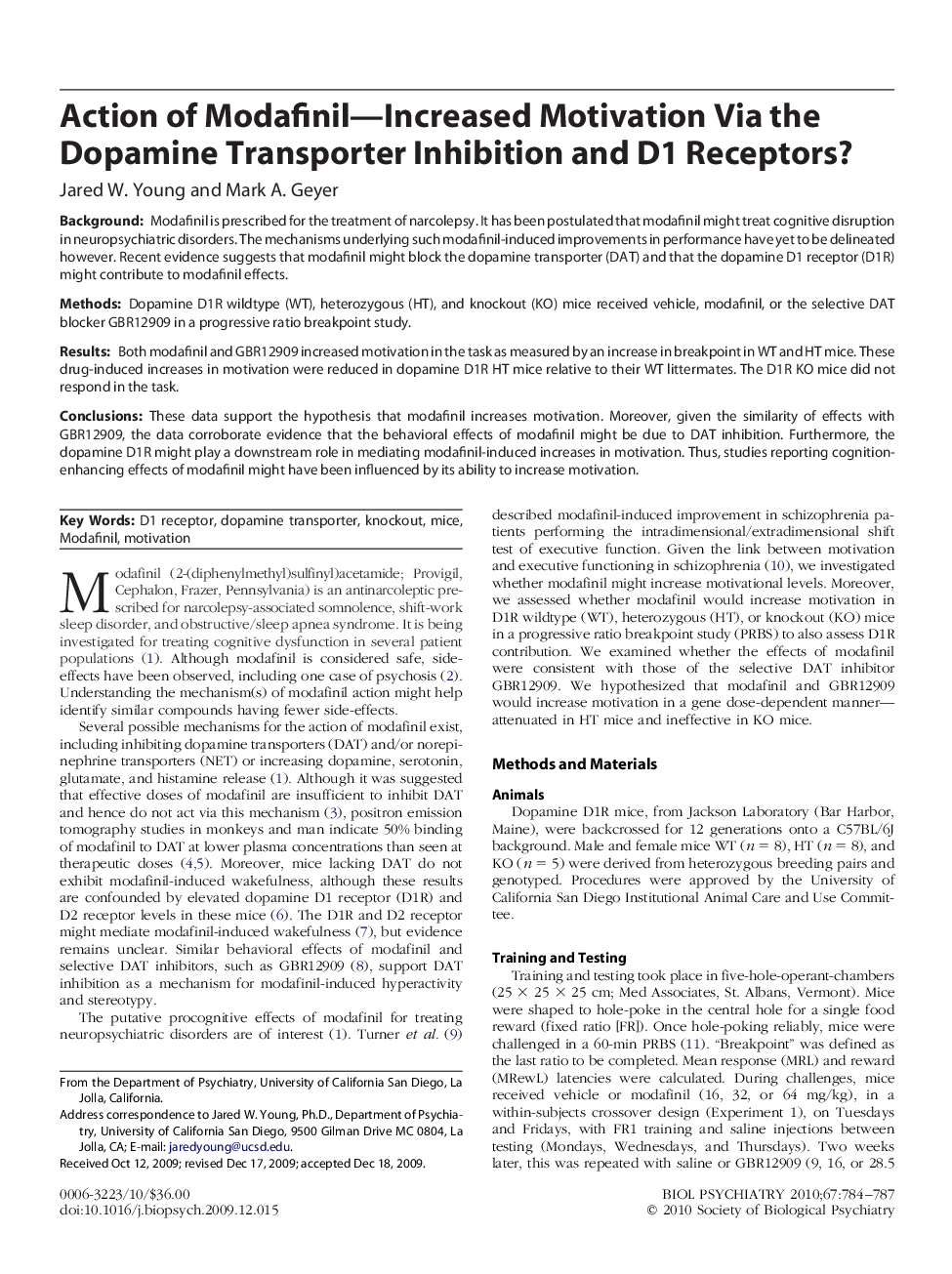| Article ID | Journal | Published Year | Pages | File Type |
|---|---|---|---|---|
| 4178681 | Biological Psychiatry | 2010 | 4 Pages |
BackgroundModafinil is prescribed for the treatment of narcolepsy. It has been postulated that modafinil might treat cognitive disruption in neuropsychiatric disorders. The mechanisms underlying such modafinil-induced improvements in performance have yet to be delineated however. Recent evidence suggests that modafinil might block the dopamine transporter (DAT) and that the dopamine D1 receptor (D1R) might contribute to modafinil effects.MethodsDopamine D1R wildtype (WT), heterozygous (HT), and knockout (KO) mice received vehicle, modafinil, or the selective DAT blocker GBR12909 in a progressive ratio breakpoint study.ResultsBoth modafinil and GBR12909 increased motivation in the task as measured by an increase in breakpoint in WT and HT mice. These drug-induced increases in motivation were reduced in dopamine D1R HT mice relative to their WT littermates. The D1R KO mice did not respond in the task.ConclusionsThese data support the hypothesis that modafinil increases motivation. Moreover, given the similarity of effects with GBR12909, the data corroborate evidence that the behavioral effects of modafinil might be due to DAT inhibition. Furthermore, the dopamine D1R might play a downstream role in mediating modafinil-induced increases in motivation. Thus, studies reporting cognition-enhancing effects of modafinil might have been influenced by its ability to increase motivation.
